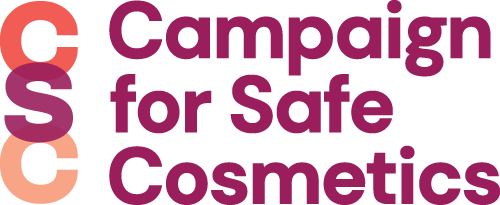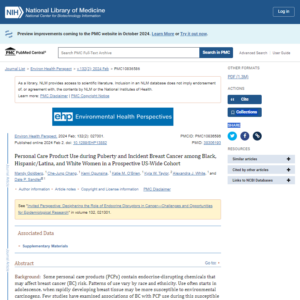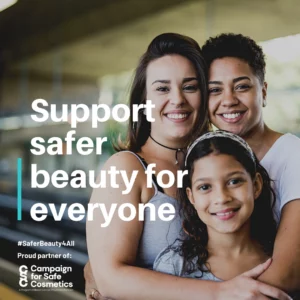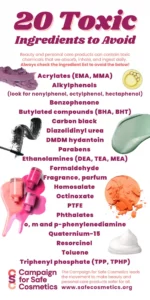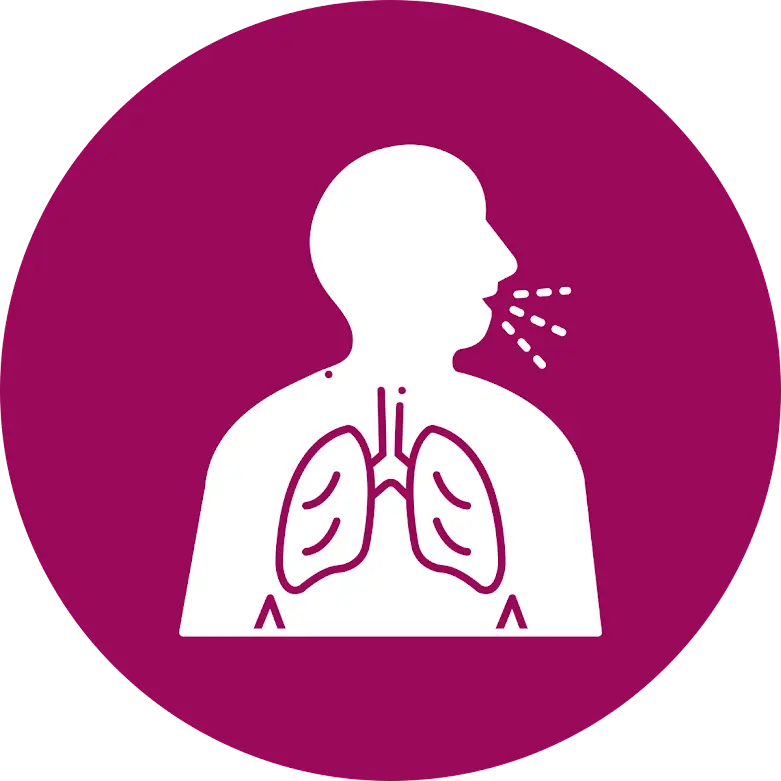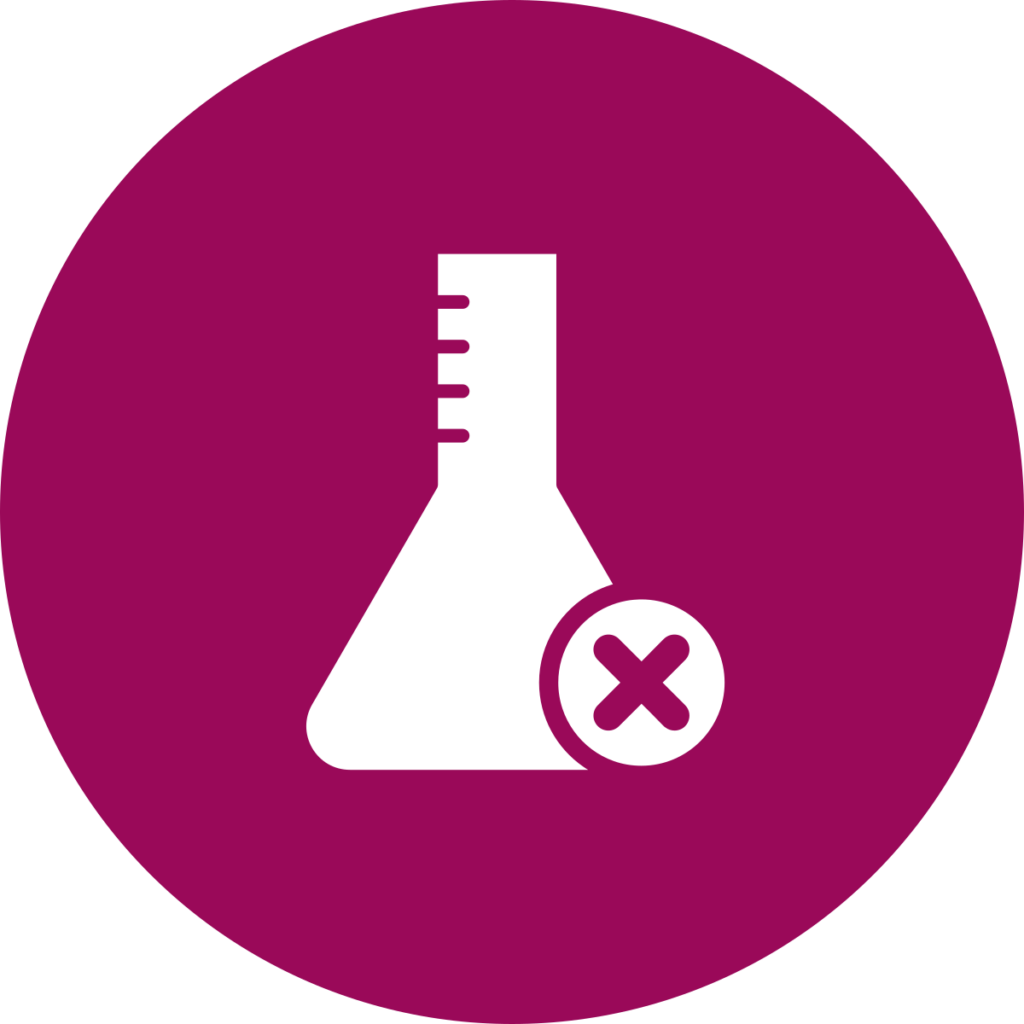For the first time in more than 75 years, Congress is poised to close the gaping holes in the outdated federal law that allows the use of chemicals linked to cancer, birth defects, learning disabilities and other illnesses and chronic diseases in the personal care products we slather on our children and on our bodies every day.
The Campaign for Safe Cosmetics is applauding the work of Sens. Dianne Feinstein, D-Calif., and Susan Collins, R-Maine, urging the Senate HELP Committee to take up the Personal Care Products Safety Act and to incorporate key strengthening amendments to make it a truly robust reform of a law that desperately needs to be updated for the 21st century.
“We all have the right to buy personal care products without the fear of exposing our families to cancer-causing chemicals,” said Janet Nudelman of the Breast Cancer Fund and the Campaign for Safe Cosmetics. “Industry self-regulation just isn’t working. The Personal Care Products Safety Act recognizes that the FDA needs more statutory authority and resources to effectively regulate the giant $71 billion cosmetics industry, and finally lays the groundwork to accomplish that. Amendments are needed to strengthen the legislation’s safety standard and force full fragrance disclosure so manufacturers and the FDA get the information they need to ensure cosmetics are free of chemicals linked to adverse health effects and people can make more informed purchases. We urge the Senate HELP Committee to give this bill the full consideration it deserves because consumers have been waiting a long time for this legislation, and they deserve nothing less than a bill that is truly meaningful and health-protective.”
Women use an average of 12 personal care products per day, exposing themselves to 168 unique chemical ingredients — not counting the dozens of often toxic yet undisclosed chemicals in fragrance. Unsafe exposures from personal care products add to our daily dose of hazardous chemicals from air, water, food and other consumer products.
Strong provisions in the bill would advance the FDA’s ability to protect Americans’ health by improving current law in the following areas:
- Directing the FDA to assess the safety of a minimum of five cosmetics chemicals a year;
- Requiring companies to register their facilities, products and ingredients with the FDA;
- Requiring companies to comply with good manufacturing practices; and
- Closing labeling loopholes by requiring full ingredient disclosure for professional salon products and web-based sales of cosmetic products.
As the bill moves forward in the legislative process, strengthening amendments are needed in the following areas:
The bill’s safety standard needs to be strengthened
The breadth and depth of the bill’s safety standard, used by the FDA to assess the safety of five or more cosmetic chemicals a year, needs to be stronger.
- In its current proposed form, it applies only to the FDA and not to manufacturers who will be responsible for the lion share of safety substantiation.
- It also lacks clarity regarding the protection of vulnerable populations including workers.
- The bill does not provide clear direction on the long term, chronic health endpoints that should be considered in safety assessments, such as cancer, reproductive and developmental harm.
Industry self-certification of safety needs to be more robust
The bill falls short of what is needed to elevate the rigor of ingredient safety reviews conducted by cosmetics companies. In key areas, it preserves the status quo – industry-led safety assessments benchmarked by industry-funded science. Industry safety substantiation of cosmetic chemicals should be based on the same safety standard used by the FDA. The bill’s provisions miss key opportunities to shore up the safety of cosmetic and personal care products.
Fragrance and other ingredients should be fully disclosed to the FDA, manufacturers, and consumers
The bill exempts fragrance and flavors from FDA ingredient disclosure which means the FDA will not receive the information it needs to effectively regulate cosmetic ingredient safety. Fragrance chemicals and other ingredients should not remain unknown to the FDA, cosmetics manufacturers or consumers. The bill also keeps fragrance and other chemicals secret from manufacturers, making it impossible for them to fully substantiate the safety of all of the ingredients in their products. Because an estimated 40 percent of personal care products include fragrance, this means a large number of products on the market today will not be fully assessed for safety. Consumers also have an urgent right to full disclosure of all, and not just some, of the chemicals in their cosmetics and personal care products so they can make safer, more informed purchases.
Data sharing of safety studies should be required
Cosmetics manufacturers and suppliers of ingredients, raw materials and fragrance should be required to submit their safety studies to the FDA, which should then make them publicly available. Industry data sharing of safety studies will result in less animal testing, will help small businesses and will increase the number of cosmetic chemicals the FDA is able to substantiate for safety.
Consumers should have the right to know about cosmetic products that are causing adverse reactions
Even though information about adverse reactions to drugs, medical devices and even toys are publicly available, the bill does not require the same for cosmetics. The public has a right to know if a personal care product causes hair loss, burns, disfigurement, hospitalization or other adverse reactions.
Federal preemption should be removed
States, which have stepped up to protect their citizens from unsafe chemical exposures, are prohibited from enacting legislation to address good manufacturing process (GMP), recalls and adverse event reporting of cosmetic products or establishing regulations to address the safety of chemicals under review by the FDA.
“The Campaign for Safe Cosmetics supports the Personal Care Products Safety Act with these important amendments,” said Nudelman. “We look forward to working with Senators Feinstein and Collins and the HELP Committee to enact strong, health-protective safe cosmetics legislation.”
###
The Campaign for Safe Cosmetics is a national coalition working to make personal care products safe for consumers, workers and the planet. It is a project of Breast Cancer Fund. Find out more at www.safecosmetics.org.
